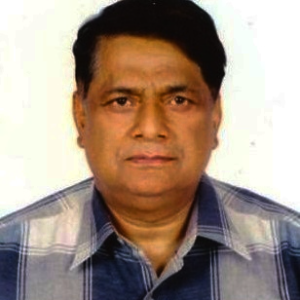Title : IFSHED - a decision support system for scheduling irrigations and fertigations in drip irrigated crops
Abstract:
Drip irrigation system is the most efficient water application method as it minimizes different water losses in conveyance, evaporation, percolation and runoff. Scheduling of irrigation and fertigation in drip irrigation system depends on several parameters including, drip system capacities, crop and its growth stage, soil type and the climate. A decision support system namely, IFSHED was developed to prepare irrigation and fertigation schedule of drip irrigated crops by closely simulating crop water and nutrients needs on daily basis. The DSS was developed in PHP computer language and all the data has been embedded in MySQL. The DSS is ready for its launch on the internet after completing the formalities of its copyright etc. The DSS will save drip users from the burden of managing all data and computing water requirement and determining irrigation and fertigation schedules.
Crop requirements of water and major nutrients are dynamic and keep changing with the stage of growth of the crop. In the DSS, daily crop water requirements were estimated from the interpolated daily evapotranspiration values from the commonly available monthly evapotranspiration values employing the daily crop coefficient values. Daily crop coefficient values were interpolated from three crop coefficients generally available at initial, development and maturity stages of crop growth. Based on the drip system capacities and its estimated daily water requirements, irrigation schedules were developed using the DSS on daily, alternate day or once a week basis, as per the choice of the user. Different soils contain different levels of nutrients as per their health status. Based on soil health, recommended dose of fertilizers and ratios of fertilizers for application through basal or fertigation schedules for fertigation were prepared using the DSS. In the DSS dynamic relationship of major nutrients uptake by crops was simpulated to estimate daily fertilizer requirements for fertigation. Based on the users choice, fertigation schedules were preapared on daily, alternate day or weekly basis using the DSS. A huge data set of soils, crops, climate and other required parameters has been embedded in the DSS to help the user with appropriate values. The DSS requires very limited data input from the user and prepares the irrigation and fertigation schedules for the entire crop duration using the default values available with it from its databank. The article presents the strategies and methodology involved in the development of the DSS and its use with the help of a real field example.



